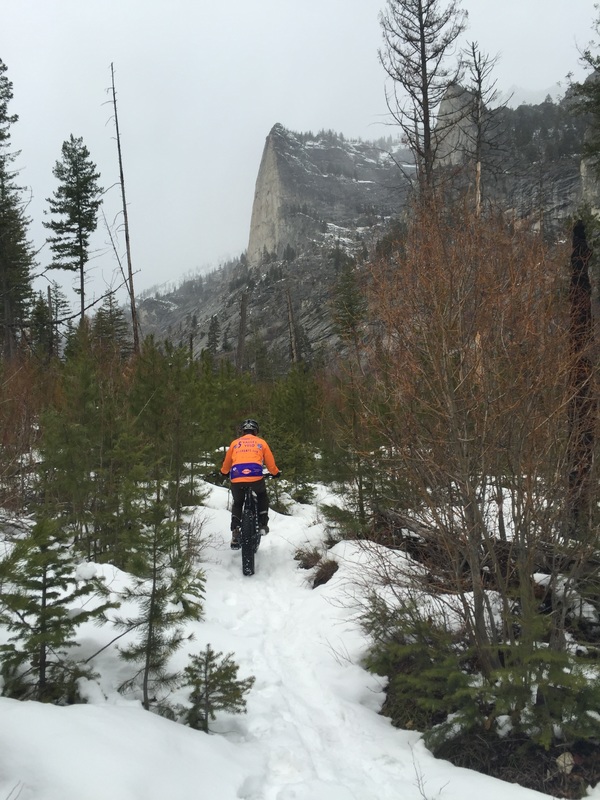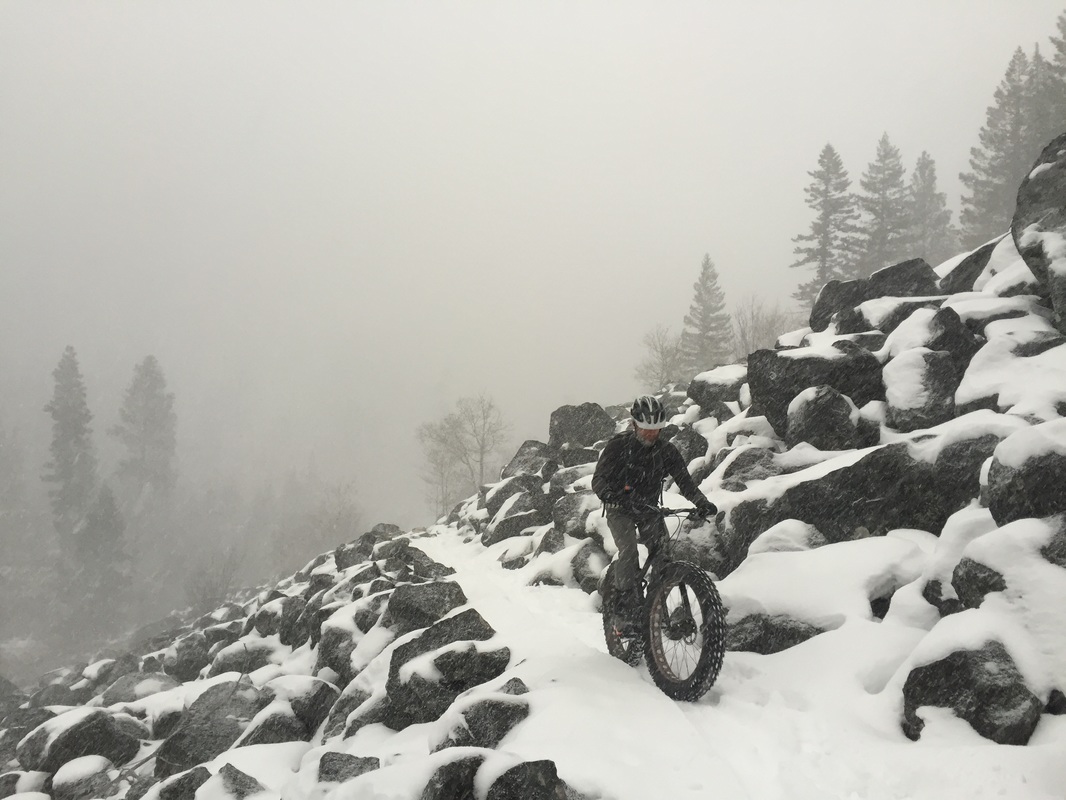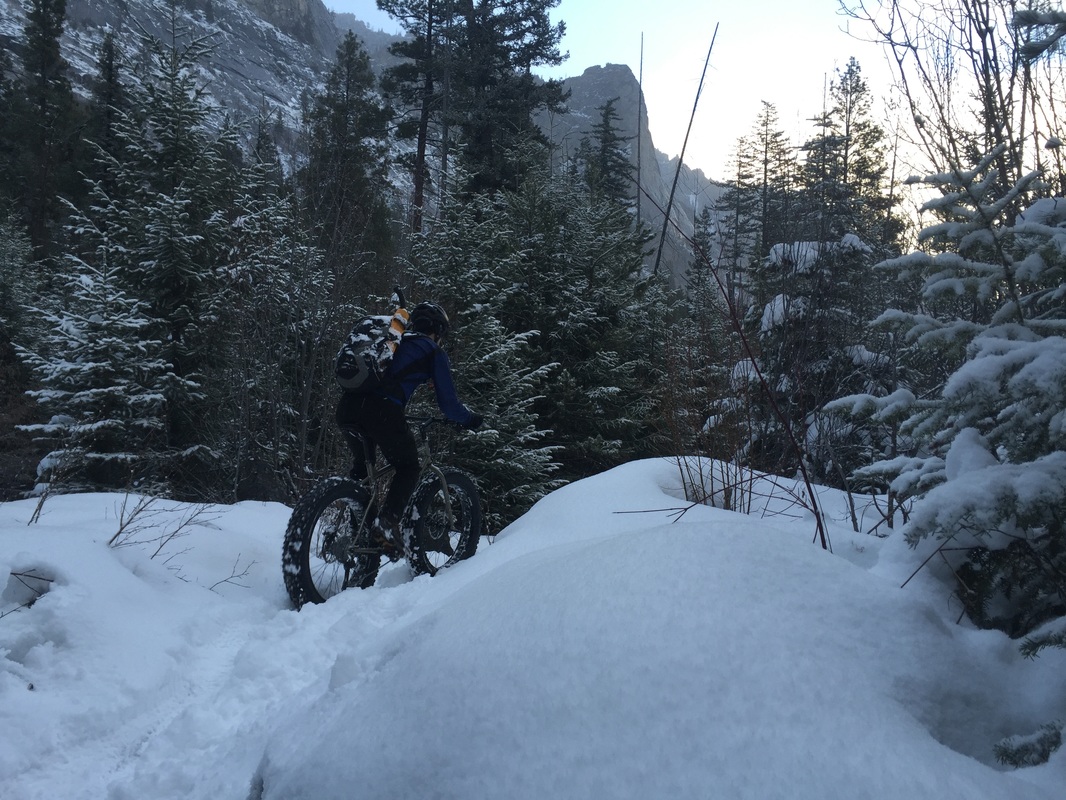|
No we haven't had a change of heart, that's the title of a letter to Congress from a collection of smaller conservation organizations. Not that there was anything in substance in the letter other than taking "mechanized" out of context and claiming that see the Wilderness Act banned bikes. Any one reading this blog knows how vacuous that argument is. Contrary to what people may think, I think there is an important discussion to had about the role of technology in wilderness. Many concerns I have heard such as, the loss blank spaces on maps, the use modern and even not so modern conveniences as a crutch that can diminish the wilderness experience, carrying capacity are valid and need to be addressed and strategies that find a workable balance need to be created. Unfortunately, running around yelling, "mechanized, mechanized" over and over again advances the conversation about as much as putting your hands over your ears and repeating, "nyah, nyah, I can't hear you." I wasn't surprised by several of the organizations who had signed on, but I was saddened to see several Backcountry Horsemen chapters sign on, including both of the chapters from the Bitterroot. I had hoped that some of our joint trail work might have soften some hearts. One of the reasons I'm disappointed with the Horsemen is their own backstory. What many people don't realize is that in the 70s there was a push to close the Bob Marshall Wilderness to horses because in their own words, "The back country was being loved to death by the placement of permanent camps, corrals, piles of garbage, not to mention human waste, and dying trees due to stock being tied to them causing root damage. " So this group horsemen organized and used a combination of stewardship, lobbying in Washington, and litigation to assure continued access to wilderness. I keep hearing from people opposed to bikes that they are opposed to bikes because we are bunch of trail hogging menaces. I think the example of the horsemen shows that all groups have their asshole elements, but the answer isn't in blanket bans but rather policies and education that encourage sustainable use. If the horsemen in the 70s could find a way to manage piles of garbage and human excrement, we should be able to manage the much smaller environmental impact of sharing trails with bikes today.
3 Comments
"Perhaps the least known of all this grand group of reserves is the Bitter Root, of more than four million acres. It is the wildest, shaggiest block of forest wildness in the Rocky Mountains, full of happy, healthy,storm-loving trees, full of streams that dance and sing in glorious array, and full of Nature's animals, - elk, deer, wild sheep, bears, cats, and innumerable smaller people."
Did you know that John Muir had left the Sierras and visited Montana. I hadn't, but apparently he did, and what did he recommend? "Wander here a whole summer, if you can. Thousands of God's wild blessings will search you and soak you as if you were a sponge, and the big days will go by uncounted" For some of us a summer was not nearly enough. A year was not enough. A lifetime may not be enough. It was here we were reminded of what he meant when he said, "The mountains are calling and I must go."
Reading Muir, I have a hard time believing that encountering a mountain bike would ruin his wilderness experience or that he would be offended by someone enjoying the outdoors in a way different from him. His desire was to show people nature and to get them to love it with the same passion he did."Fresh beauty opens one's eyes wherever it is really seen, but the very abundance and completeness of the common beauty that besets our steps prevents its being absorbed and appreciated. It is a good thing, therefore, to make short excursions now and then to the bottom of the sea among dulse and coral, or up among the clouds on mountain-tops, or in balloons, or even to creep like worms into dark holes and caverns underground, not only to learn something of what is going on in those out-of-the-way places, but to see better what the sun sees on our return to common everyday beauty. "
He wanted people to venture beyond the safety and comforts of resorts, to not experience nature through a plane of glass, "Most travelers here are content with they can see from car windows or the verandas of hotels, and in going from place to place cling to their precious trains and stages like wrecked sailor to rafts."
Ever here someone say, "nature is my church, " or "the woods are my temple?" Sometimes I think people take this too literally. I once engaged a fierce anti-bike wilderness advocate who said, "You wouldn't ride a bike through the Sistine Chapel, why do think you should be able to ride your bike through my church?" Well, first off I've done a lot of things in the wilderness that I wouldn't do at the Vatican including digging cat holes, skinny dipping, climbing pillars, making love. There is do doubt that Muir saw the divine in nature, and if he believed it to be a church I imagine it wouldn't be the whispering and tip toeing propriety of a Prairie Home Companion Lutheran Church, but rather an acoustic version of James Brown's church in the Blues Brothers, and when he saw the light he would be doing back flips down the aisle. Why do I think that? Because along with being a church the forest and the mountains were also a library and a classroom where he learned this lesson, "Surely all God's people, however serious or savage, great or small, like to play. Whales and elephants, dancing, humming gnats, and invisibly small mischievous microbes - all are warm with divine radium and must have lots of fun in them."
Finally I can't help that think that John Mir would are a mountain biker, if only because is understands the importance of flow, "Everything is flowing -- going somewhere, animals and so-called lifeless rocks as well as water. Thus the snow flows fast or slow in grand beauty-making glaciers and avalanches; the air in majestic floods carrying minerals, plant leaves, seeds, spores, with streams of music and fragrance; water streams carrying rocks... While the stars go streaming through space pulsed on and on forever like blood...in Nature's warm heart."
All photos from Blodgett Canyon, One of the trails being closed by the Bitterroot National Forest Travel Plan, and probably one of the more popular trails in the forest being only 5 miles from town. As you can see from the scarcity of tracks, popularity is relative and the place remains as wild as when Muir was alive.
Time for some more letter writing. The folks at the Montana Bicycle Guild have done a bang up job of evaluating the wilderness inventory for the Helena and Lewis & Clark Forest Plan revision. Hey everyone!
|
AuthorLance Pysher Archives
September 2017
CategoriesInstagram |
||||||



 RSS Feed
RSS Feed